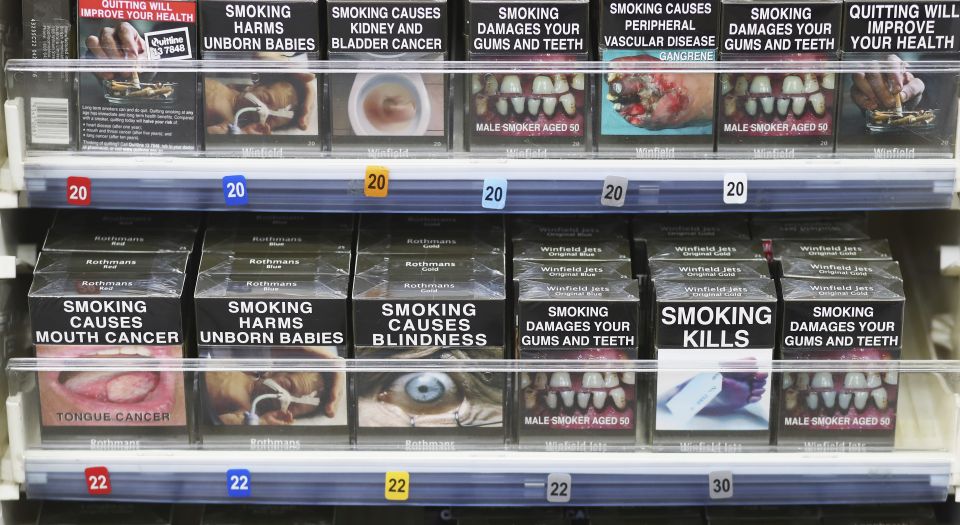Plain packaging is plain stupid
It has boosted the black market while failing to stub out smoking rates.

It’s been a year since mandatory plain packaging for tobacco products was introduced in the UK. All tobacco products now have to be sold in greenish packets without distinctive branding. It was supposed to discourage smoking by making the packaging look unappealing. But when we look at plain-packaging policies around the world, the evidence tells us it has been a failure.
Australia was the first country to introduce plain packaging. The Australian government claims it has been a success. But a 2016 The Australian government claims it has been a success. But a 2016 study by the RMIT University of Melbourne slammed the policy as a complete failure. It showed that the government’s evaluation of the policy was biased. It failed to accurately represent the data it collected and was carried out by the same lobby groups that had advocated the policy in the first place.
Smoking rates have indeed decreased in Australia since the plain-packaging policy was introduced in 2012. But they were already falling prior to then. In fact, the decline in the smoking rate has slowed since plain packaging came in. Plain packaging was even introduced at the same time as sky-high tax hikes on tobacco products, but neither seems to have made a great impact on smoking rates.
So why has plain packaging had so little effect? Perhaps because one of the few beneficiaries of the policy seems to be counterfeiters. As plain packs are easier to copy than their branded alternatives, the trade in illicit cigarettes is thriving. In Australia, from 2012 to 2017, the proportion of cigarettes sold illegally has risen from 12 per cent to 17 per cent. It is difficult to say whether plain packaging or tax rises are the biggest driver of this increase. But it is certain that plain packaging eases the work of those who sell illegal, cheaper cigarettes to low-income consumers. Earlier this year, the Australian government vowed to crack down on the black economy and the trade in illicit tobacco was their largest target.
It’s a similar story in France, which introduced plain packaging in January 2017. In the first six months of the policy, there was a slight increase in cigarette sales by 0.9 per cent, compared with the same period in the previous year. Not only that, the sales of rolling tobacco increased by 3.6 per cent over the first three months of 2017, even after the introduction of a hefty new tax on the product. The French government plans to increase the price of cigarettes to €10 per pack within three years. But once again, even if this manages to decrease sales in the local Tabac, it will make consumers more likely to switch to illicit cigarettes. According to current estimates, a third of cigarettes are already sold on the black market in France.
So what about plain packaging in the UK? Smoking rates had been in decline for years before the introduction of plain packs. But according to the Tobacco Manufacturer’s Association, smoking rates in England have actually increased slightly since then. It estimates that there could be 350,000 more adult smokers across the UK than there were a year before plain packaging was introduced.
Of course, correlation is not causation. Plain packaging is unlikely to have caused the small increases in cigarette sales in either France or the UK. But it is clear that these measures, which were introduced to reduce smoking rates, have failed . Instead, it has been a boon to criminals and the production of illicit products under dubious conditions. When we crunch the numbers, the plain truth is that plain packaging doesn’t work.
Bill Wirtz is a policy analyst for the Consumer Choice Center. Follow him on Twitter: @wirtzbill
Picture by: Getty
To enquire about republishing spiked’s content, a right to reply or to request a correction, please contact the managing editor, Viv Regan.








Comments
Want to join the conversation?
Only spiked supporters and patrons, who donate regularly to us, can comment on our articles.